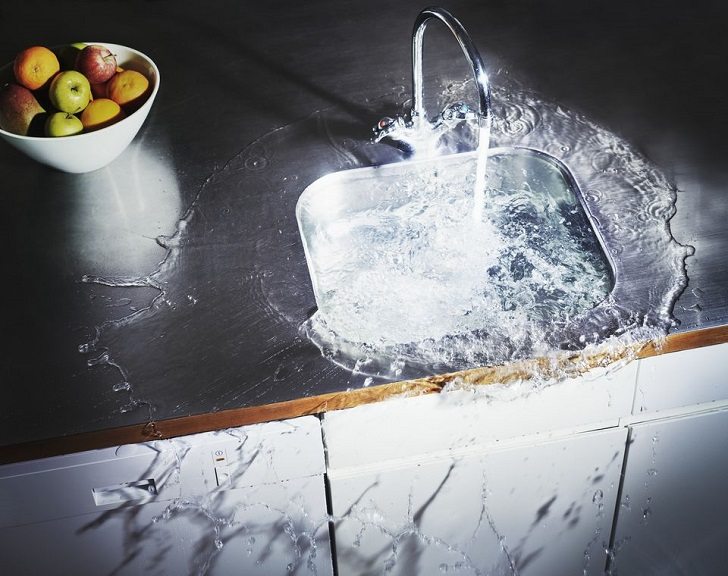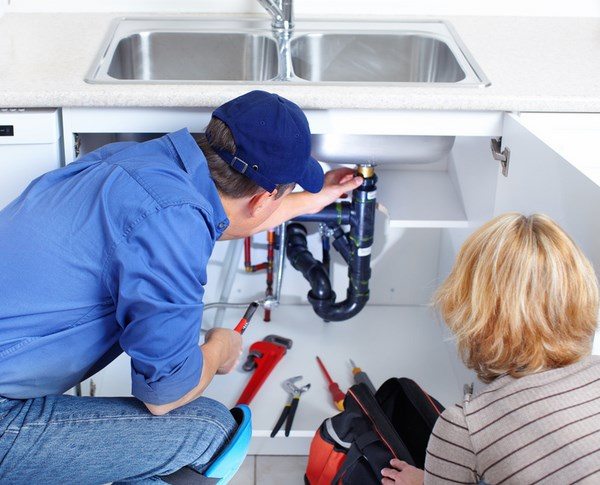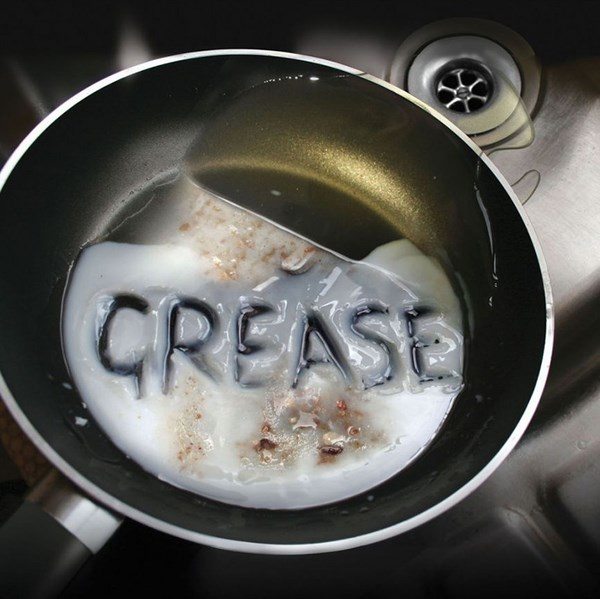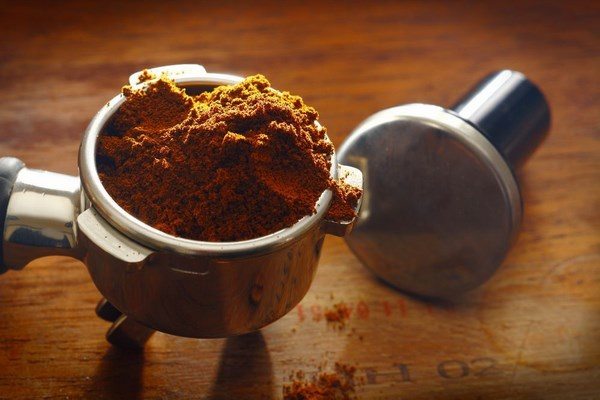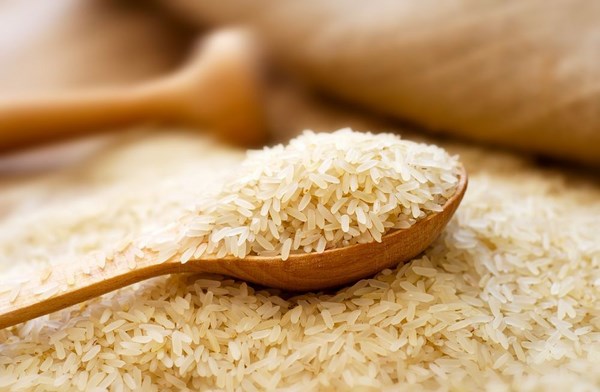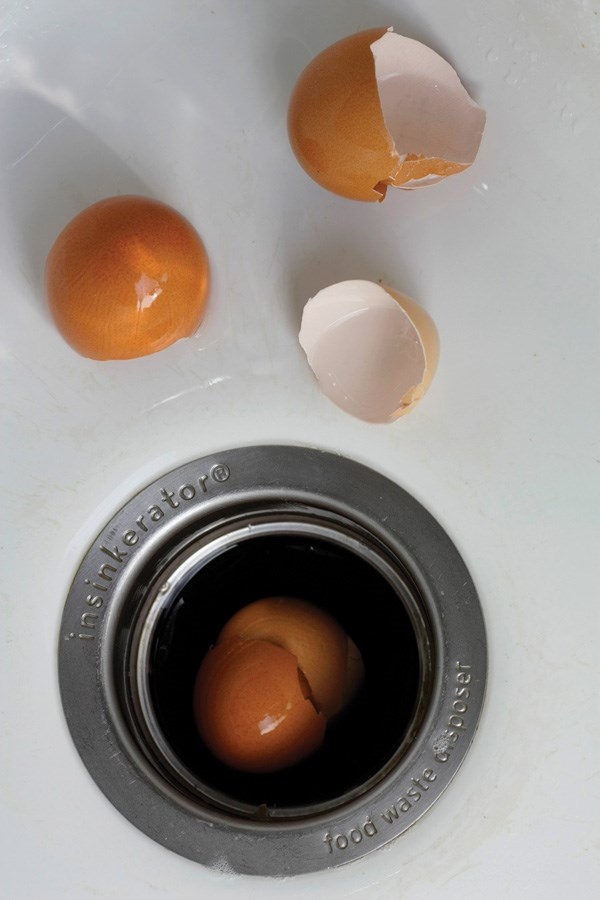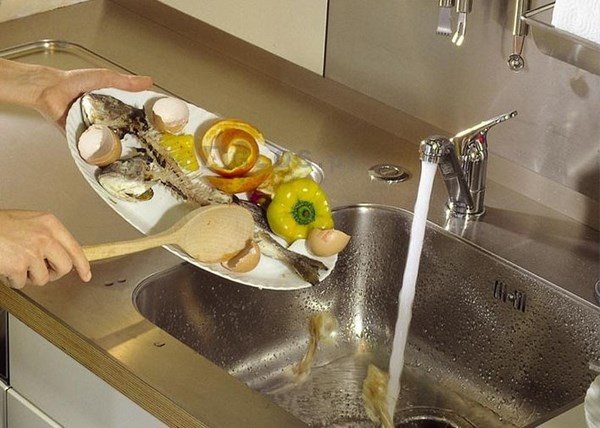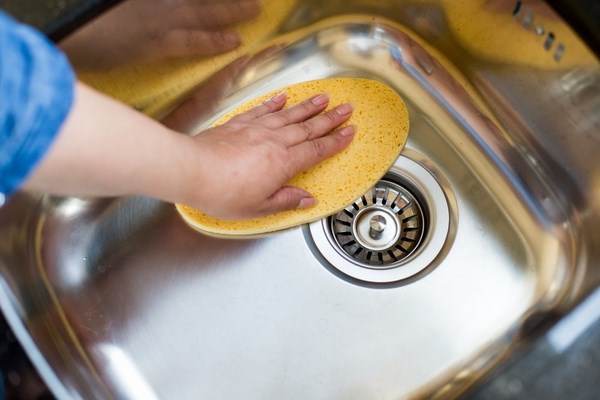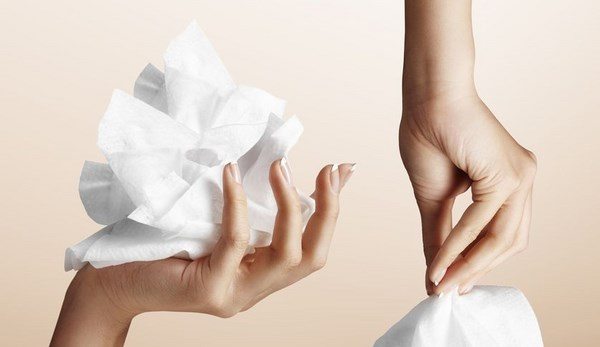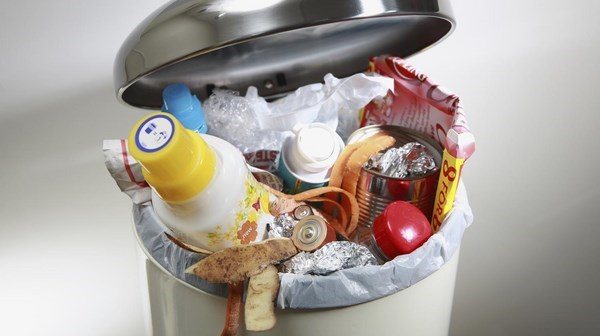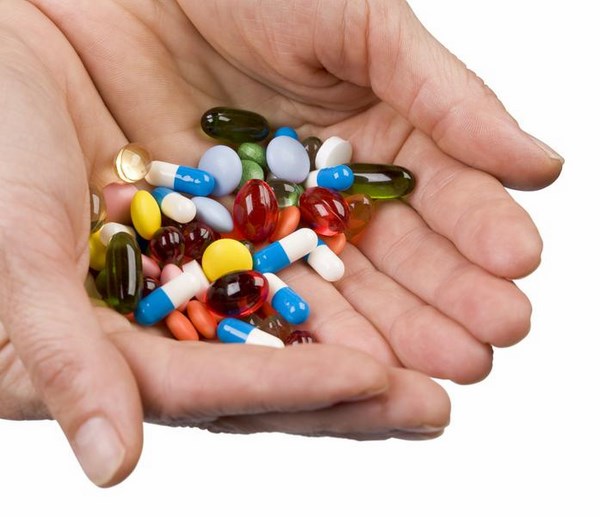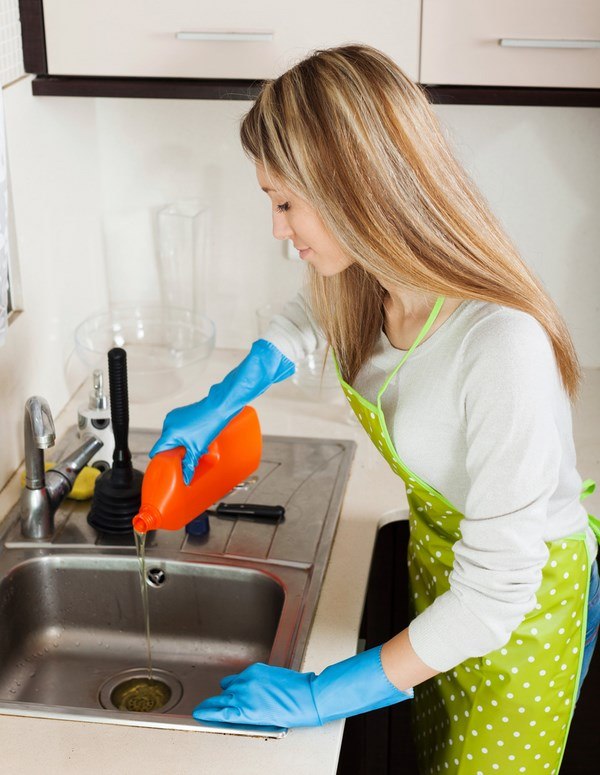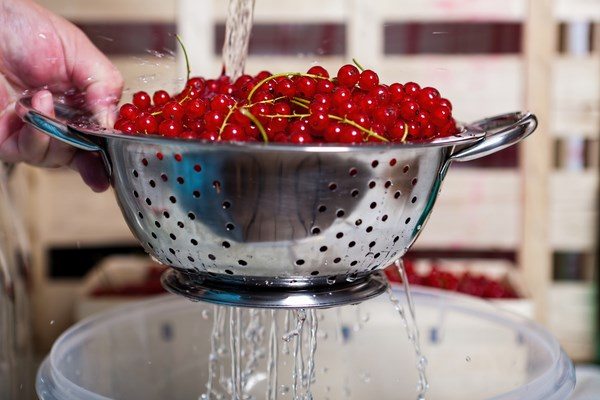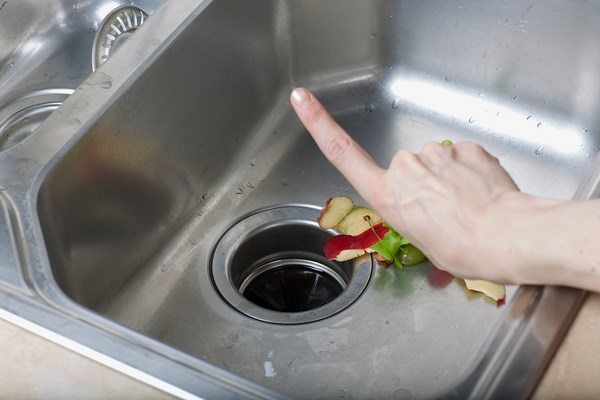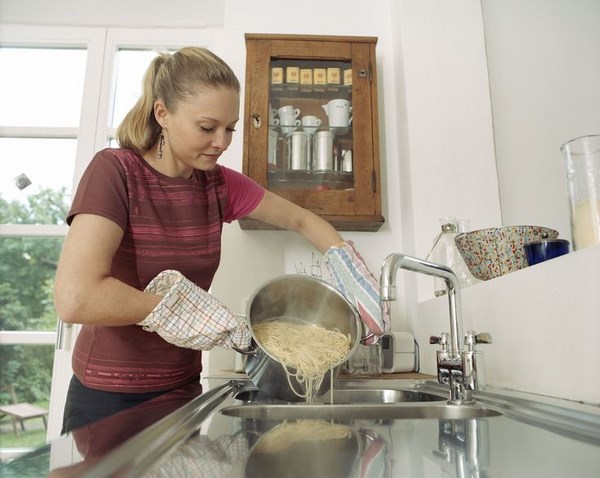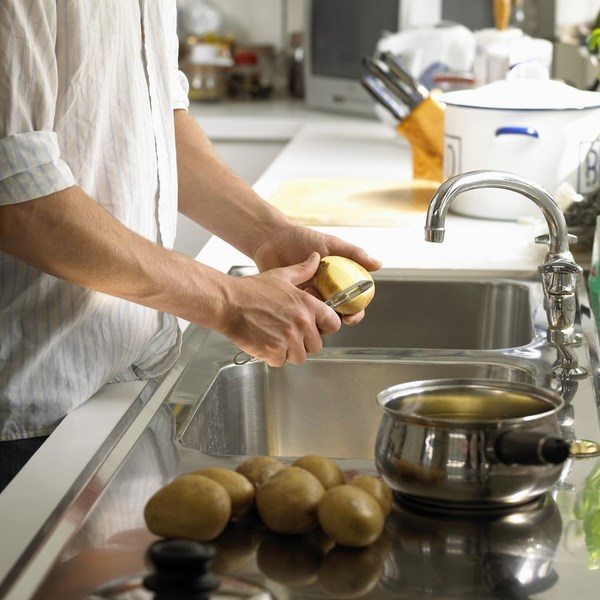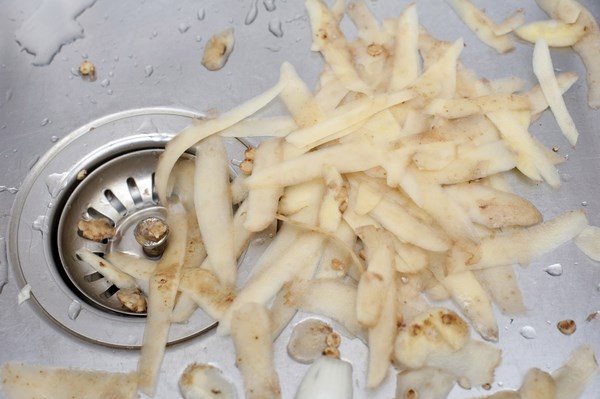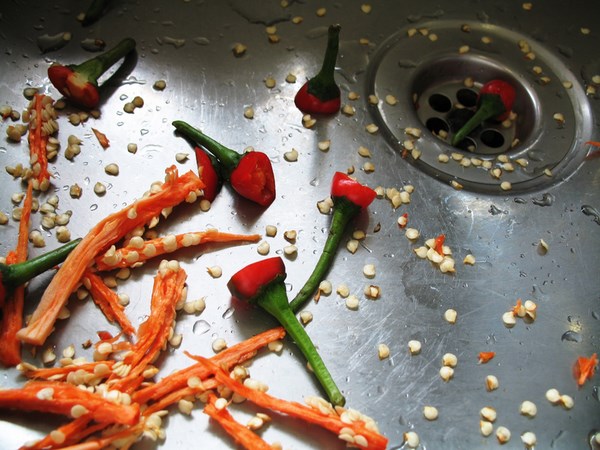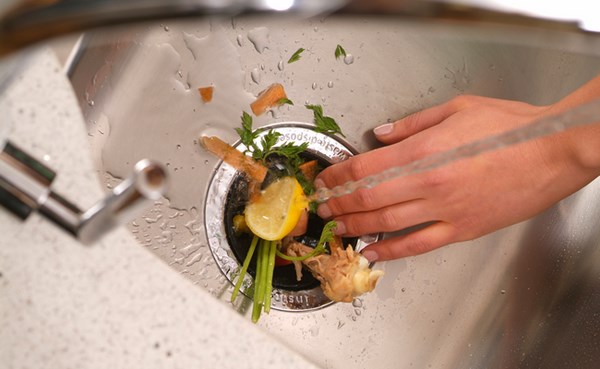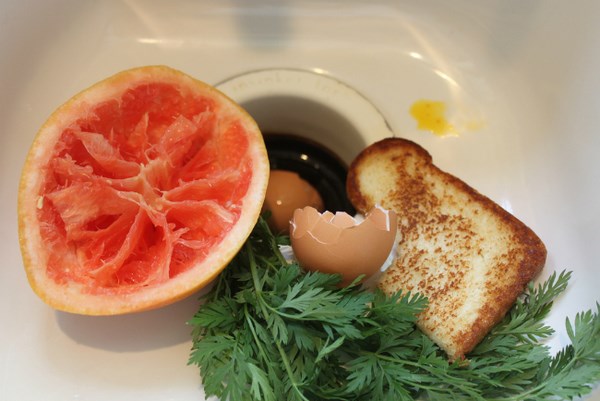How to prevent kitchen sink clogs and save us from the trouble of unclogging a kitchen sink? Everyone knows how frustrating a clogged drain can be. Kitchen sink drainage pipes most often get blocked because of our own negligence of the simple rules for maintenance and care for the drain pipes. The first sign that the kitchen sink may be clogged is when the water drained slowly. It is not pleasant but it happens and is a result of fats, food particles and non-food substances which accumulate over time, so no matter how careful we are when washing dishes, sometimes we are not able to prevent this problem. Are you aware what the most frequent reasons for clogging are? We will give you a list of the things that you should never put down your drain.
How to prevent kitchen sink clogs – practical tips to prevent clogging
When it comes to the question how to prevent kitchen sink clogs there two major groups of household products that you should never put down the drain –food and non-food items. The first group includes fats, oils and foods. Of course, there is no need to keep a list pinned to the wall, but with some common sense and careful maintenance you can do your best to prevent clogs.
Fat, grease and oil – these should never go down the drain. When grease cools it solidifies, thickens and sticks to the pipes and, with time, causes a clog. You can let fats and oil cool in the cooking pan or pour the fat into a container and after it gets cool, throw the container in the trash. This includes cooked fat from meat, bacon, sausages, melted butter, lard, shortening, peanut or other nut butters, dressings, mayonnaise and other sauces. It is a good idea to pour 2-3 cups of boiling water down the kitchen sink drain at least once a week. This will help melting any fat or grease in the pipes.
Grounded coffee and tea leaves should never go down the drain. You may have heard one of these urban myths that coffee grinds can clear the pipes, but this is really a myth. The fact is that coffee grinds, if mixed with fats, will definitely clog your pipes. The same is valid for tea leaves as they can build up in the drain pipe and create a clog.
Pasta, rice, starchy, jelly and fibrous foods, potato, orange, banana or any other fruit peals are another group that is the most common reason for kitchen sink clogging. Fruit and vegetable peels are hard and food like pasta, rice, anything with gelatin and starchy food expand when in contact with water, becomes sticky and easily can create a blockage in your drain pipes. Make sure you do not put seeds or pits from avocado, olives, cherries, peaches, plums, etc, and use a strainer when washing fruits.
Eggshells – these have a membrane inside the shell and sometimes are hard to be grounded which traps them around the garbage disposal blades.
Bones, the only exception is fish bones, should not go down the drain as well. They are easily trapped in the pipes and cause a clog before you know it!
How to prevent kitchen sink clogs – non-food items that you should not put down the garbage disposal
Besides the group of food that you should avoid putting down the drain pipe of the kitchen sink, whether you have a garbage disposal or not, there is a group of non-food items which may cause a clog. Many people think they are soft and easy to handle, but they are wrong.
Paper towels, napkins, baby wipes, cotton balls, band aids, etc, – some of these just do not disintegrate and are the perfect way to cause pipe clogging.
Rubber and plastic (or metal) bottle cups, cigarette butts, balloons, and other items made of rubber have no place down the drain pipe.
Medications that you should not put down the drain pipe include liquid medicines, lotions, cosmetics, nail polish and nail polish remover, etc.
Cleaning products like bleach and anti-bacterial cleaners, paints and solvents can damage the pipes and the sewage system, so it is wide not to pour any of those in the sink drain pipe. The list of non-food items that can cause clogging includes fruit and vegetable stickers, car fluids like motor oil, anti-freeze and other chemical products, cat litter, glue, razors, needles, etc.
As you can see, the list includes quite many food and non-food items that should be avoided. However, prevention is always better and the easy answer of the question how to prevent kitchen sink clogs is to be careful and sensible. Using a strainer is the easiest way to control what goes down the drain. Regular maintenance and cleaning will also help you prevent clogging. You can clean the sink once a month with non-toxic, environmentally-friendly household products like baking soda and vinegar which can dissolve and wash away any potential obstacles in the drain pipes. When using your garbage disposal, always run a steady flow of water which will carry the waste through the drainage system. Throw leftover food in the trash which will prevent accumulation of greasy substances in the pipes. Being thoughtful when putting food waste or any other items and substances will save you from a messy sink and the trouble of unclogging it or even call a plumber to handle a more complex problem.

